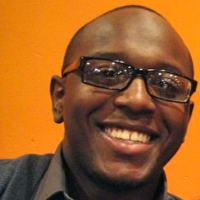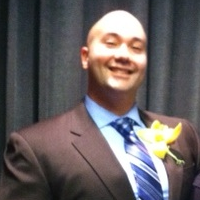Our Counselors Answered:
What do college students wish they’d done differently in high school?
 William Chichester
William Chichester
What do college students wish they’d done differently in high school?
Start college planning sooner! Choose your high school classes wisely and make sure you’re taking the most challenging classes in your high school. Participate in after school programs and clubs.
 王文君 June ScortinoPresidentIVY Counselors Network
王文君 June ScortinoPresidentIVY Counselors Network
better prepared and more planning
many public school students were not prepared under guidance and counseling during the high school period.
with the right plan, students can save time, more productive, and have a plan for college admissions.
by picking the right school, students are better prepared to succeed.
 Scott WhiteDirector of GuidanceMontclair High School
Scott WhiteDirector of GuidanceMontclair High School
What do college students wish they’d done differently in high school?
Most students are happy with their experiences in college and don’t have regrets about high school. For every student who wished he was challenged more and with brighter peers there is a brilliant slacker who is perfectly happy not working any harder than they did in high school or college.
 Gail GoetzEducational ConsultantPrivate Practice
Gail GoetzEducational ConsultantPrivate Practice
Skills to master in high school
While learning content material in high school is important, the three skills to master that are most important for success in college are time management, organization, and self-advocacy. I have seen many bright students become overwhelmed and stressed because they cannot manage their time properly or stay organized.
 Rebecca JosephExecutive Director & Foundergetmetocollege.org
Rebecca JosephExecutive Director & Foundergetmetocollege.org
Back to the future: avoid our mistakes in high school
So many college students wish they could go back in time and change one or two major things. Some would say I just wish I had taken 9th grade more seriously. Others say I wish I had used my summers more productively and gotten even more active in extracurriculars and community service. While even others wish they had taken harder classes and gotten help earlier in the year when challenges in key classes occur. Finally others wish they had taken their SAT and ACT readiness more seriously. You can make a change. Follow passions. Take your work and life seriously. Don’t look back with any regrets.
 Tiziana Cotumaccio
Tiziana Cotumaccio
What college students wished the’y done differently in high school
Studied more, had a higher GPA, and more community service.
 Tam Warner MintonConsultantCollege Adventures
Tam Warner MintonConsultantCollege Adventures
Advice
Here is a great article to read for an answer to this question: http://www.paulgraham.com/hs.html
 Donna LandrethHS Counselor/Educational ConsultantFounder and Owner of Expert College Planning
Donna LandrethHS Counselor/Educational ConsultantFounder and Owner of Expert College Planning
Academic Choices in HS Affect College Admission
Many times, high school students do not realize the importance of taking a challenging curriculum in high school, but also performing well within those classes. By the time you enter 11th grade, you have already established half of your gpa/rank that you use to apply to colleges your senior year.
Another issue would be to be involved in extra-curricular clubs and organizations as well as volunteering for community service opportunities. It’s important to show leadership and in-depth involvement.
It’s also important to take a challenging schedule every year. Be careful not to over-extend yourself academically as it can have a reverse affect on your GPA. In that case, focus on taking your rigorous classes within your strength subject areas.
 Benjamin CaldarelliPartnerPrinceton College Consulting, LLC
Benjamin CaldarelliPartnerPrinceton College Consulting, LLC
What do college students wish they’d done differently in high school?
Many college students wish they began planning for college earlier in their high school career.
 Nicholas Umphrey
Nicholas Umphrey
If I could do it again..
I get a lot of the same responses to this question each year when I have had graduating students return after their first semester of college to speak to senior students about college life.
Most students talk about the importance of writing effectively in college and also being prepared for the amount of reading required in their classes. Many students feel like they would have focused more on this in high school if they knew what was to come.
The most important factor they tell me is around study skills and organization. Many students struggle with the sudden independence they receive and do not remain accountable for their studies. This includes things like staying up until 2 am and sleeping through your 8 am class the next day.
As a college counselor, I can already see who has these skills when I do the college application process with them in their senior year. The kids who get me their application materials 1-2 days before the due date need to be better prepared and organized in this process. These are also the kids who tend not to have the same organizational skills needed to perform well in college.
 Laura O’Brien GatzionisFounderEducational Advisory Services
Laura O’Brien GatzionisFounderEducational Advisory Services
Executive Management Skills
Often they wish they had learned executive management competencies: how to organize, study skills, time management and prioritizing. All of these skills are essential to handling your new responsibilities as no one will be looking over your shoulder to make sure you finished your papers and projects OR getting you up in time for that 9am class.
 Nancy MilneOwnerMilne Collegiate Consulting
Nancy MilneOwnerMilne Collegiate Consulting
High School Hindsight
The number one regret I hear from clients is always about their poor academic performance during HS. While you can’t change the grades, you can try to improve your transcript with the time remaining. An upward trend in grades means a lot to the admissions committee.
 Nancy MilneOwnerMilne Collegiate Consulting
Nancy MilneOwnerMilne Collegiate Consulting
High School Hindsight
The number one regret I hear from clients is always about their poor academic performance during HS. While you can’t change the grades, you can try to improve your transcript with the time remaining. An upward trend in grades means a lot to the admissions committee.
 Helen Cella
Helen Cella
What do college students wish they’d done differently in high school?
Care less about what their peers thought and experiment more
 Kim GlenchurEducational ConsultantCollegesGPS
Kim GlenchurEducational ConsultantCollegesGPS
Too many choices
Some people have known since childhood what they want to study in college. Others experience a “eureka” moment sparking their life’s work. Most students, however, enter college undecided on their objectives, hoping that something will click when taking an elective course.
Part of college preparation is to discover individual strengths and interests, and how to develop them during and after college. More critical than getting into college is how a student gets out of college. A major difficulty before college is gaining exposure to what the world has to offer, particularly in interdisciplinary fields. For many students, finding an academic direction before college can focus efforts to do well in high school and identify related extracurricular opportunities.
 Dori MiddlebrookOwnerDori Middlebrook Educational Consulting
Dori MiddlebrookOwnerDori Middlebrook Educational Consulting
What do college students wish they’d done differently in high school?
Many college students report wishing they had worked harder in high school and challenged themselves more with Honors and AP classes. Friends in college started with many college credits due to their success on AP exams.
Others wish they had started testing (SAT and ACT) earlier in order to have more time to improve their scores. Some wish they took SAT subject tests so they had those scores in case they wanted to apply to a school that required them.
Some college students regret not getting more involved at their high school or in their community with clubs, organizations, sports and community service.
Many wish they had visited more schools before their senior year or taken more of an interest in the process early on.
 Francine SchwartzFounder/ PresidentPathfinder Counseling LLC
Francine SchwartzFounder/ PresidentPathfinder Counseling LLC
What do college students wish they had done differently in high school?
As the former College Consultant at a large independent high school, I hosted return of the alumni events. Former students returned during the winter holidays to share their insights with current juniors and seniors. Invariably the one thing that they always mentioned was they wished they had developed better study habits, particulary being organized, and not procrastinating. Developing that discipline in high school will serve you well when there is not one keeping track of whether or not you complete assignments or even show up at class. You simply must have that internal motivation and organization to succeed in college!
Francine Schwartz
Founder and President
Pathfinder Counseling LLC
 Erin AveryCertified Educational PlannerAvery Educational Resources, LLC
Erin AveryCertified Educational PlannerAvery Educational Resources, LLC
GPA Begin with An A
An A is worth the same whether it is freshman year or senior year, so start strong and establish a solid GPA from the outset so that you don’t have to fight to compensate for a low 9th grade GPA.
 Erin AveryCertified Educational PlannerAvery Educational Resources, LLC
Erin AveryCertified Educational PlannerAvery Educational Resources, LLC
GPA Begin with An A
An A is worth the same whether it is freshman year or senior year, so start strong and establish a solid GPA from the outset so that you don’t have to fight to compensate for a low 9th grade GPA.
 Bill PrudenHead of Upper School, College CounselorRavenscroft School
Bill PrudenHead of Upper School, College CounselorRavenscroft School
What do college students wish they’d done differently in high school?
Ask them. Check the student side of this website to get some answers to that question, but also when you make a campus visit do not limit yourself to the official stuff. See if you can sit in on a class where in addition to getting a sense of the academic atmosphere and approach you will also have a chance to talk to students both about their current experience, as well as about the things they have learned and the things they wish they had known. The transition can often be hard, and while the way it impacts people will vary considerably, there are certain pitfalls that can be avoided if one has some advance warning. When alums come back to your school, when you see students back in town or home on vacation, ask them about their experience. They are living it and what they have learned can help you.
 Frances Gard
Frances Gard
What do college students wish they’d done differently in high school?
Most college students that I have talked to wish they had taken more challenging classes and worked harder in those classes. The other thing that I hear them talk about is that they wish they had been more involved in community service. Colleges really want to see that applicants are well-rounded.
 Bernadina Streeter
Bernadina Streeter
What do college students wish they’d done differently in high school?
They wished they realized how high school impacts his/her First Year Experience & taken advantaged of high school being a trial run for test taking, study skills, planning, and academic & extracurricular challenges.
Many first year college students are disappointed and get discouraged when they find out they’ll have to enter college beginning with college-prep courses.
 adam baerWriter and Editor for Top National Magazines, Websites, and Newspapers
adam baerWriter and Editor for Top National Magazines, Websites, and Newspapers
What do college students wish they’d done differently in high school?
Read and write more. This is a classic problem for freshmen: They’ve graduated with good grades from high school but now they find themselves in an environment where teachers expect you to read multiple books per week, and to write well. Sadly too many high schools do not grade students properly, and many teachers don’t have the time or resources to help students learn the ins and outs of great writing. What passes for an A in senior-level high-school English will often barely get you a C in a college. It’s vital to really spend your junior and senior years of high school, at the very least, reading more than what’s assigned to you in school, and writing, whether it’s fiction, essays, journalism, etc. If you arrive as a college freshman reading a few books a week already, and if writing a strong paper comes easily to you, you will be in good shape and devoid of two main regrets that many college students share.
 Ivery McKnight
Ivery McKnight
What do college students wish they’d done differently in high school?
In most instances, a current college student would wish that they had paid attention the first time. That they had also taken more detailed notes or absorbed more of the information and instruction during high school. A college student may also wish that they had explored more options in their course selections whether in electives or CORE study. Additionally, study habits, in fact habits of any kind are not formed over night and therefore, one may reflect upon their use of time and or commitment to their high school studies.
 Geoff BroomeAssistant Director of AdmissionsWidener University
Geoff BroomeAssistant Director of AdmissionsWidener University
What do college students wish they’d done differently in high school?
Write more, study better. When you get to college, your study habits will change. They have to. You will be expected to write so much more in college than you did in high school. Do original research. This is kind of hard in high school as you are often asked to dissect a piece of research or literary reference. In college you will be asked to perform your own research and report your findings.
 Cheryl Millington
Cheryl Millington
What do college students wish they’d done differently in high school?
What most high schools students don’t realize is that the academic expectations are higher in college and you should have developed better study skills and habits to meet this demand and avoid having a decrease in your college grades.
 Steven YehCounselorAmerican Education Foundation
Steven YehCounselorAmerican Education Foundation
What do college students wish they’d done differently in high school?
Many of the students I’ve worked with wished they knew about the much faster pace of academic work in college as compared to high school. These students would have taken a more challenging course load in high school to better prepare them for college-level work, especially in competitive Majors. Students have also expressed that they wished they participated in more experiential opportunities to learn about occupations first hand while still in high school before they decided on a Major. Some students are finding out too late that they actually don’t enjoy the work related to their college Major but have come too far to change.
 Steven YehCounselorAmerican Education Foundation
Steven YehCounselorAmerican Education Foundation
What do college students wish they’d done differently in high school?
Many of the students I’ve worked with wished they knew about the much faster pace of academic work in college as compared to high school. These students would have taken a more challenging course load in high school to better prepare them for college-level work, especially in competitive Majors. Students have also expressed that they wished they participated in more experiential opportunities to learn about occupations first hand while still in high school before they decided on a Major. Some students are finding out too late that they actually don’t enjoy the work related to their college Major but have come too far to change.
 Zicky Villette
Zicky Villette
What do college students wish they’d done differently in high school?
Try a little bit harder, most college students feel unprepared for the amount of work and the quality of work that they have to do when they get to college. My best advice is take your english courses seriously, they can get you through everything. From an email to a thesis being able to write is something you will always have to do.
 Zicky Villette
Zicky Villette
What do college students wish they’d done differently in high school?
Try a little bit harder, most college students feel unprepared for the amount of work and the quality of work that they have to do when they get to college. My best advice is take your english courses seriously, they can get you through everything. From an email to a thesis being able to write is something you will always have to do.
 Cheryl Millington
Cheryl Millington
What do college students wish they’d done differently in high school?
What most high schools students don’t realize is that the academic expectations are higher in college and you should have developed better study skills and habits to meet this demand and avoid having a decrease in your college grades.
 王文君 June ScortinoPresidentIVY Counselors Network
王文君 June ScortinoPresidentIVY Counselors Network
What do college students wish they’d done differently in high school?
I think that most students can benefit from early guidance and planning in high school.
by having a plan in place, students can save time and more productive for college admissions especially financial aid.
 Helen H. ChoiOwnerAdmissions Mavens
Helen H. ChoiOwnerAdmissions Mavens
Study More But Worry Less
Most college students wish that they would have gotten their academic act together a bit sooner in their high school careers. Why? Having better grades and possessing more finely tuned work habits — lead to more college options and better college performance!
College students also counsel high school students to worry less about college admissions. This is great advice because worrying never got anyone into college! Instead of worrying or regretting — put your energy and resources into making the most of your present!
 Kim RomanPresidentCustom College Planning, LLC
Kim RomanPresidentCustom College Planning, LLC
Hindsight is 20-20
The college students I have spoken with all say the same thing: I would have gotten involved in more extracurricular activities in high school. I would have learned how to manage my time more efficiently. I would have cultivated more effective study skills. And finally…I would have not worried so much about getting into college and enjoyed my high school years more.
 Patricia KrahnkePresident/PartnerGlobal College Search Associates, LLC
Patricia KrahnkePresident/PartnerGlobal College Search Associates, LLC
I Really Blew It
Short Answer:
A lot.
Detailed Answer:
Well I’m not a college student, but I do know what I wish I’d done differently in high school:
1. I wish I had taken calculus and physics. Math and physics of any kind enables you to exercise mental abilities that can be exercised in no other way. I have discovered that I use math and physics every day – whether it is in understanding the meaning of statistics in an article that I am reading; or driving a car and understanding why the car can’t go around that curve that fast; or measuring a room to determine how much wallpaper to buy; or looking up at the night sky and understanding the expanse of the universe and how small my personal concerns are in relation to it.
2. I wish I’d taken Latin. It would have helped my vocabulary by helping me to understand word origins. It also would have helped me be a better writer, by helping me to understand sentence structure. I would have started my college years much more confidently, and I would have gotten a lot more out of those years – faster and cheaper.
3. I wish I’d taken Classics – anything that was offered – literature, mythology, etc. Classic literature helps you to understand history and the world, even if that world is the one that surrounds you every day. I would have understood more about people and how their life experiences affected them. The choices of characters and their resulting successes and failures would have helped me to make better choices of my own – whether those choices were romantic, financial, family-related, or career-related. I would also have understood at an earlier age more about people who are different from me, socioeconomically, ethnically, religiously, and culturally, which is important for anyone planning to be part of a diverse college community.
4. I wish I’d taken Philosophy –anything that was offered. Philosophy teaches you how to think critically, which means being able to take what you experience and process it in a logical way with effective reasoning. Frankly, I would have gotten into fewer scrapes along the way!
 Brett RoerCollege 101 Teacher / College AdvisorCollege 101 Consulting, Founder
Brett RoerCollege 101 Teacher / College AdvisorCollege 101 Consulting, Founder
What do college students wish they’d done differently in high school?
Every college student will tell you they wish they took high school more seriously, because not doing your best in high school either left you at a disadvantage when applying to college or at a disadvantage once you actually start taking college classes.
Become more active in high school clubs or activities that you are interested in. Those extracurricular activities can not only be fun, they can lead to experiences you can write a personal statement about and get a letter of recommendation from the teacher who leads club.
Don’t wait to start the college application process. Begin visiting colleges in 9th grade, try to get into summer academic programs at local colleges, volunteer or work after school, this in addition to your academics. Try writing your personal essay during 11th grade, and have a teacher or counselor begin to revise it with you now. (No one said this was easy!)
STUDY! Even if high school comes easy to you, get in the habit of taking notes while the teacher is speaking in class, reviewing your notes daily, and reading your textbook every night. College students are typically unprepared for the amount of time spent studying, and forming good habits now will pay off later.
 John Happs
John Happs
What do college students wish they’d done differently in high school?
The one answer I get often is work on time management and procrastination habits. College is about being responsible for your time.
 Patty Finer
Patty Finer
What do college students wish they’d done differently in high school?
Prepared better… Hired a college consultant to avoid all the costly mistakes they have made.
 Angela ConleyCollege Admission ExpertVentureForth
Angela ConleyCollege Admission ExpertVentureForth
What do college students wish they’d done differently in high school?
Without fail, the response I hear most often with regard to this question is, “I wish I had developed better study and time management habits.” In too many cases strong students grew to rely on their intellectual prowess in high school, sometimes mistakenly assuming that the workload in college is similar to that in secondary settings. Courses easily “aced” in high school are often far more challenging in university settings. It is also the case that for students who enjoyed stable homelife environments, they discover in campuses with residential options that is far more difficult to manage the pull of opportunities for social engagement. It’s hard to say no to extracurricular aspects – say bowling and a movie- of collegiate life, despite the ten-page mid-term due in three days.
 Todd WeaverSenior AdvisorStrategies for College, Inc.
Todd WeaverSenior AdvisorStrategies for College, Inc.
What do college students wish they’d done differently in high school?
In my experience, study harder! Take tougher classes!
 Joan Thomas
Joan Thomas
What do college students wish they’d done differently in high school?
The most common answer I hear from students is that they wish they would have applied more effort into their studies, resulting in better grades and more college choices. The second answer I hear frequently, is that they wish they would have gotten more involved in campus activities sooner.
 Renee Boone
Renee Boone
What do college students wish they’d done differently in high school?
College students often say they wish they had taken more rigorous high school classes so as to better prepare for college level work. Some also wish they had mastered time management skills.
 Reecy ArestyCollege Admissions/Financial Aid Expert & AuthorPayless For College, Inc.
Reecy ArestyCollege Admissions/Financial Aid Expert & AuthorPayless For College, Inc.
What do college students wish they’d done differently in high school?
Focusing more, getting better grades so they’d get in to better colleges. The possibilities for an answer are endless.



























